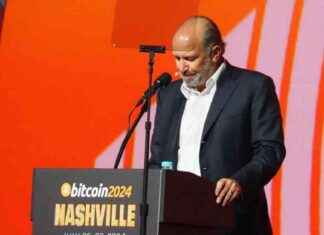Vara avoids criticizing him outright, the other PSOE leaders who have spoken out give their trust to Sánchez
MADRID, 11 Nov. (EUROPA PRESS) –
The regional presidents of Aragón and Castilla-La Mancha, Javier Lambán and Emiliano García-Page, are the only socialist ‘barons’ who have fully rejected the proposal by the chief executive, Pedro Sánchez, to repeal the crime of sedition, while the rest of the regional leaders of the PSOE have supported this approach and the president of Extremadura, Guillermo Fernández Vara, has admitted that he does not like “anything” that the independence movement likes, although he recognizes a “different scenario”.
This has been the response of the autonomous presidents of the PSOE to the announcement made this Thursday night by Pedro Sánchez to repeal the crime of sedition, which has materialized this Friday morning through a bill presented by the PSOE and United Podemos, which directly proposes the suppression of the articles that refer to sedition as it is currently written.
The first to ‘raise his voice’ against this proposal by Sánchez was the Aragonese president Javier Lambán, reiterating his rejection of the repeal of the crime of sedition and warning that what happened in Catalonia “was very serious”.
For this reason, Lambán has defended that the State should have “other legal tools” to be “very well armed politically and legally” in the face of “any possibility of an attack against the Constitution.”
Emiliano García-Page has also spoken in similar terms, who has assured that “obviously” he does not share the decision to repeal the crime of sedition, warning that “leaving solutions to those whose purpose is to break coexistence is not the way Right”.
In fact, the leader of the Socialists of Castilla-La Mancha has also influenced his statements that he made before knowing the details of the repeal, acknowledging that what worries him most about this debate is that “the first objective of all : that Puigdemont came to Spain and submitted to the Spanish courts of justice with the same rules as Junqueras and the others did” instead of “changing the rules of the game in the middle of the match”, something that he considers should be done “for justice basic”.
As Lambán has warned, Page has also claimed the obligation to have constitutional and democratic defense mechanisms to maintain the constitutional order. “I wish he hadn’t had to go to jail, that he wouldn’t have had to go through a referendum like the one that took place. I think there was dilemma with the PP, there were too many arms crossed, there were big mistakes when it came to managing problem, it got out of hand” and now “that bill is being paid.
For his part, the Extremaduran president, who has been another of the barons critical of some of Sánchez’s decisions, in this case has not issued his explicit support for this repeal of sedition, although he has not wanted to reject it outright as they have done. his companions from Aragon and Castilla-La Mancha.
In this context, Vara has assured that he does not like “almost nothing” of what the independence movement likes, but he has recognized that there is a “different scenario” in which the independence movement and the separatist process “has broken”.
“I like almost nothing that the independence supporters like. That is out of principle and out of a certain level of conviction after a long time and because I also believe that democratic socialism and nationalism, nationalisms and independence movements take the back chocolate”, he asserted.
However, the suppression of the crime of sedition has had support within other autonomous presidents of the PSOE, as has been the case of the Balearic leader, Francina Armengol, and other regional secretaries such as Luis Tudanca or Juan Espadas.
In the case of the Balearic president, she has expressed her support for Sánchez’s proposal because she considers that the repeal of the crime of sedition is a “necessary” step. Something similar is defended by sources from the Government of La Rioja, chaired by Concha Andreu, who, in addition, emphasize that it is a change in the Penal Code away from the amnesty requested by the independence movement.
Meanwhile, the leader of the socialists of Castilla y León, Luis Tudanca, has assured that he prefers that “measures be adopted to improve coexistence than to break it, although he has asserted that he understands “the doubts” due to the “noise that the PP tries to make disproportionately.”
Juan Espadas, for his part, has argued that Sánchez’s proposal is part “in compliance with an electoral commitment of the PSOE and of the president himself” and general secretary of said party.
And beyond the socialist barons, the Government has also found the support of the President of the Generalitat, Pere Aragonés, and the Lehendakari, Iñigo Urkullu, who has also asked for a reflection on the State model and article 155 of the Constitution.
Sánchez’s proposal has also caused all the regional presidents of the PP to come out en bloc to charge against the chief executive and this decision, which he considers “trying to break up Spain.”
In this context, the president of Castilla y León, Alfonso Fernández Mañueco, has accused Sánchez of putting his “personal ambitions” before the general interest, while his Andalusian counterpart, Juanma Moreno, has denounced a “marketing” by the Government.
For her part, the Madrid leader Isabel Díaz Ayuso has said that Sánchez “has signed the surrender of the rule of law to those who want to break up Spain”, the Murcian president Fernando López Miras has described it as “recklessness and shame” and his counterpart from Galicia, Alfonso Rueda, believes that Sánchez is “willing to do anything to stay in power.”








